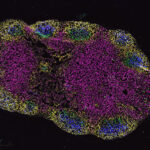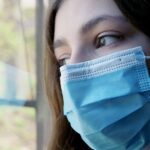Preparing your child with autism for a hospital visit during COVID-19
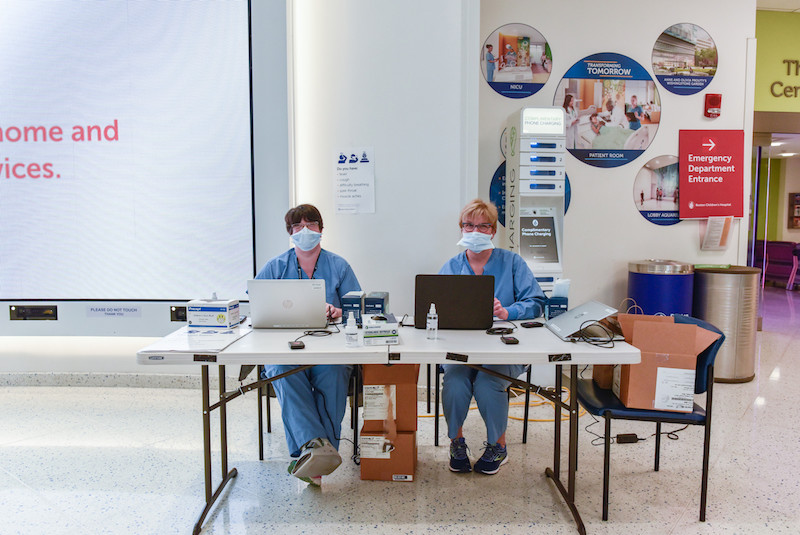
Most kids aren’t used to the sights, sounds, and smells of a hospital. And because of COVID-19, medical settings look and sound much different than usual. Busy hallways are nearly empty. People are wearing face masks. Even kids who come to the hospital often may not recognize the place they’ve visited many times.
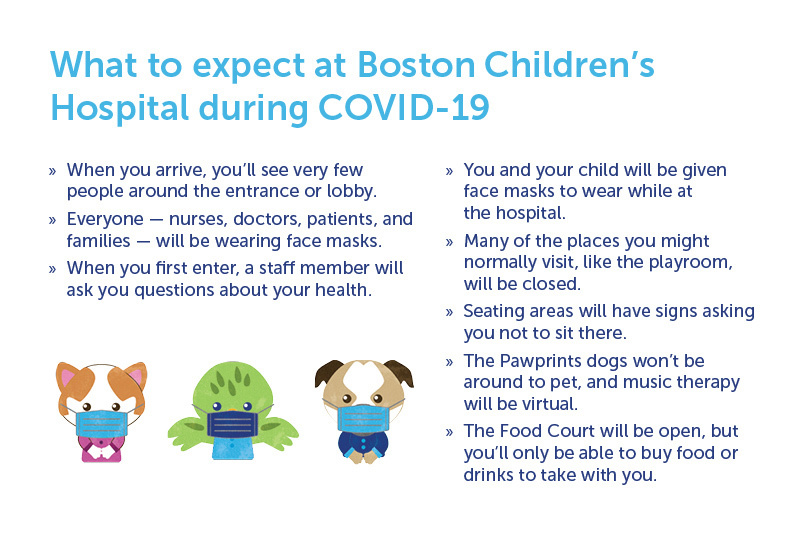
Why prepare your child for a hospital visit?
“Visiting an unfamiliar place can be especially upsetting for children with autism,” says Rachel Santiago, inpatient speech-language pathologist with the Augmentative Communication Program. Many may be on edge from school shut downs and the loss of routine. An unexpected trip to the hospital can compound this anxiety.
“It’s hard on everyone when a child arrives in distress,” says Kristin Coffey, child life specialist with the Autism Spectrum Center. She and Santiago have worked with children whose discomfort and confusion in the hospital has led to a decrease in communication skills and an increase in challenging behaviors. While parents can’t prevent every melt down, advance preparation can go a long way toward helping children cope in a hospital setting.
Let your child know what to expect
Knowing what to expect at the hospital can help your child feel less out of control and more prepared for the unfamiliar sights and sounds.
If your child needs to go to Boston Children’s for a COVID-19 test, one of these hospital stories can help them understand what might happen:
- My Hospital Testing Story: Drive-through swab
- My Hospital Testing Story: Throat swab
- My Hospital Testing Story: Nasal swab
“We created these materials with children with autism in mind,” says Coffey, “But the information is really useful for any child who has to come to the hospital.”
Tell your child the doctors and nurses might be wearing strange clothes
Clinicians may be wearing face masks, gowns, gloves, and possibly clear plastic face shields, when you bring your child to the hospital. This personal protective equipment (PPE) protects clinicians from COVID-19 infection and helps prevent the spread of germs to other patients. But it makes them look different, and possibly scary to your child.
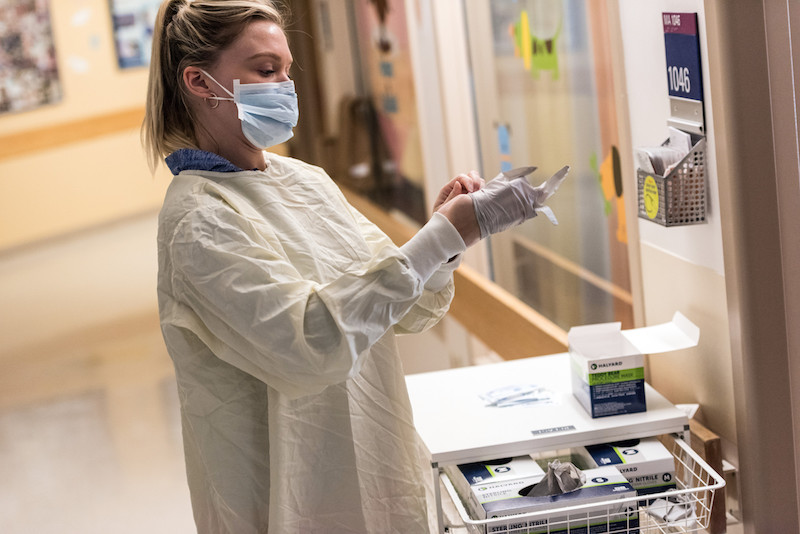
“Children with autism may have trouble reading facial expressions,” says Santiago. “Masks that cover our mouths make it even harder for them.” When she talks with children, she’ll say things like, “You can’t see it, but I’m smiling right now,” to make up for the loss of facial signals.
In fact, with the help of child life specialists, many of the caregivers at Boston Children’s are finding creative ways to make PPE less scary for their patients. Some have made cards with a photo of themselves not wearing a mask on one side, and a photo of them wearing a mask on the other. Some departments have pictures of familiar cartoon characters wearing face masks.
Bring some of your child’s things
A familiar toy, blanket, or photos from home can help make your child feel more at ease in the hospital.
Help your child communicate
If your child uses an assistive device at home to communicate, be sure to bring it to the hospital so your child can interact with the people caring for them.
Prepare clinicians
Your child’s clinical team will want to know things like your child’s favorite cartoon characters and how you soothe your child at home. “When we’re trying to calm a child or get a crisis situation under control, it’s really helpful to know what things make them happy, or what coping techniques work at home,” says Santiago.
To help parents prepare, a team of speech-language pathologists and child life specialists developed My Hospital Planning Packet: Prepare for a hospital visit during COVID-19. The worksheet has space for you to fill in your child’s interests, medical information, and communication strategies. While the worksheet may appear lengthy, the information about your child can be especially helpful for clinicians treating your child. “We’d much prefer to have more information than we need,” says Coffey.
If possible, fill out the planning packet when your child is feeling well, as part of an action plan in case you need to bring your child to the hospital. This will give you time to gather any needed materials.
You might watch this video with your child before you come to Boston Children's to prepare them for how things are different due to the coronavirus.
Additional resources for parents and children
The following materials can help you support your child at home during the COVID-19 outbreak.
- Talking to children about COVID-19
- Tips for a structured day at home
- Helpful resources during the COVID-19 outbreak
Social stories about getting tested in a specific location:
- My Hospital Testing Story: Boston Children’s Patient/Family Garage nasal swab for those with symptoms
- My Hospital Testing Story: Boston Children’s Patient/Family Garage throat swab for those without symptoms
- My Hospital Testing Story: Waltham drive-through swab
Get more answers about Boston Children’s response to COVID-19 or learn more about the Autism Spectrum Center or Augmentative Communication Program.
Related Posts :
-

Creating the next generation of mRNA vaccines
During the COVID-19 pandemic, mRNA vaccines came to the rescue, developed in record time and saving lives worldwide. Researchers in ...
-

Reversing the trend: Easing the mental health boarding crisis in emergency rooms
Anxiety, depression, and suicide attempts have been rising over the past decade, especially among teens, often landing them in emergency ...
-

Brain wiring predicted adolescents’ emotional health during COVID
The COVID-19 pandemic was emotionally devastating for many adolescents, disrupting their schooling and social/emotional development. Drawing on national data, ...
-

Medical care for youth with neurodevelopmental disabilities: A call for change
According to national data, one in six children has a neurodevelopmental disability (NDD) such as autism, intellectual disability, or ADHD. ...


